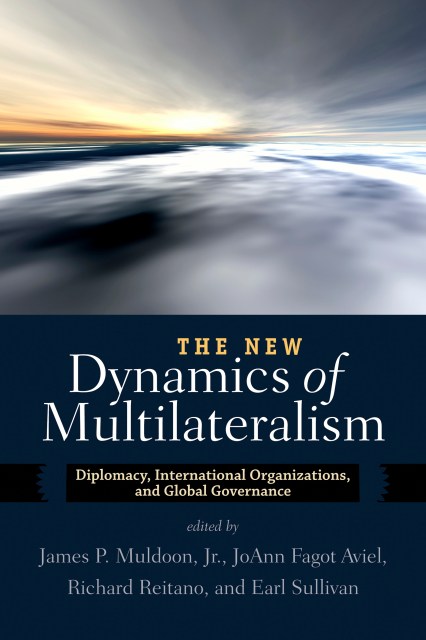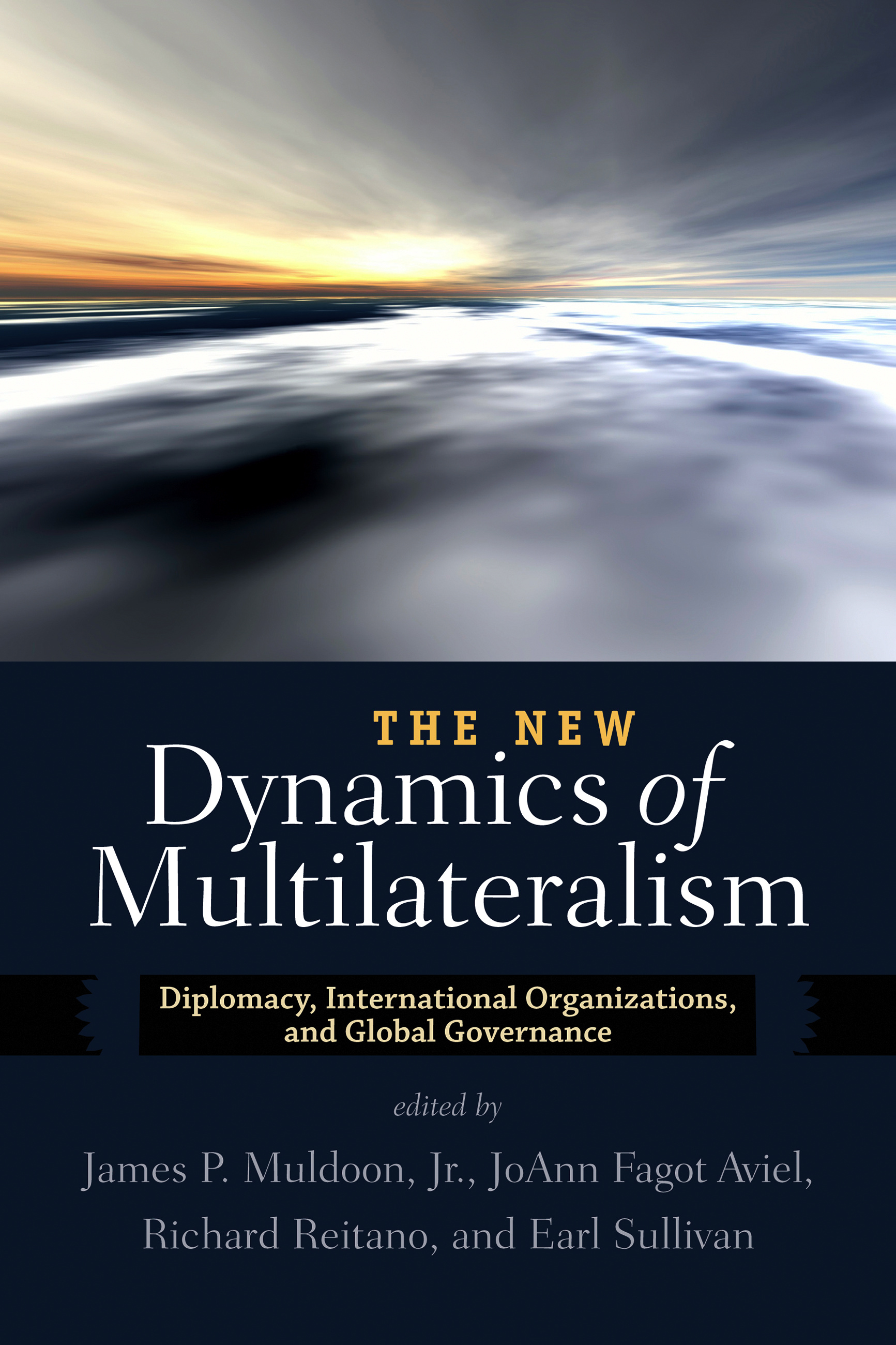9780813344812
Diplomacy, International Organizations, and Global Governance
Contributors
Edited by James P. Muldoon, Jr.
Edited by JoAnn Fagot Aviel
Edited by Richard Reitano
Edited by Earl Sullivan
Formats and Prices
- On Sale
- Aug 31, 2010
- Page Count
- 384 pages
- Publisher
- Avalon Publishing
- ISBN-13
- 9780813344812
Price
$45.00Format
Format:
- Trade Paperback $45.00
- ebook $25.99
Buy from Other Retailers:
This timely new book focuses on the various dynamics of contemporary multilateralism as it relates to global issues, global governance, and global institutions. Invited authorities, including academics, business people, and members of international groups, contribute original essays on how multilateralism as an institution has been affected by globalization, the rise of civil society and global business, emerging economic and political conditions, and new threats to peace and security in the world. Emphasizing practical applications over theoretical foundations, The New Dynamics of Multilateralism helps students understand how the practice of multilateral diplomacy has been influenced by the changes in the processes and procedures of international organizations and the role of multilateralism in the transformation of the international system of governance and the transition to an emerging new global order.
-
“While your computer spell-checker still does not like the term, ‘multilateralism' has moved from the periphery to the mainstream of foreign policy concerns by major and minor powers alike. The New Dynamics of Multilateralism is essential reading for all serious students of world politics and global governance.”
—Prof. Thomas G. Weiss, The CUNY Graduate Center
“This is a comprehensive and compelling account of multilateralism and its changing role in the conduct of diplomacy, the operations of international institutions, and the construction of patterns of regional and global governance. The editors showcase diverse theoretical perspectives on multilateralism and the practical experiences of those who have actually been engaged in it. In so doing, they provide us with a volume that is both accessible to students and indispensible to scholars and practitioners alike as they seek to come to grips with the shifting shape of world politics in the 21st century.”
—Paul Sharp, Professor and Head of Political Science, University of Minnesota, Duluth
By clicking ‘Sign Up,’ I acknowledge that I have read and agree to Hachette Book Group’s Privacy Policy and Terms of Use






